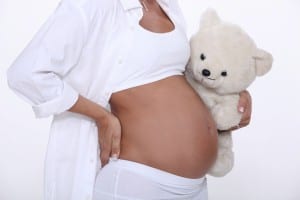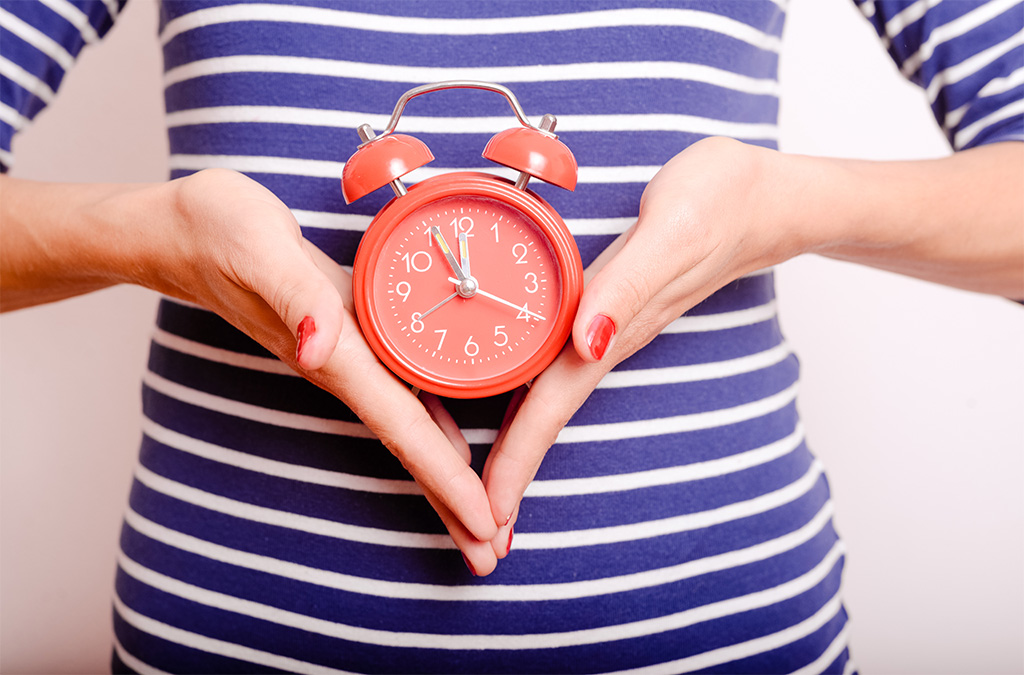 One of the gender differences in human reproduction is that men make new sperm continuously throughout their lives and women make all of their eggs before they are born. Men are capable of conceiving children late in life while women usually exhaust their supply of eggs by their early fifties. In addition, the quality of a woman’s eggs declines before the supply is exhausted, which significantly reduces a woman’s chance of conceiving as she ages. This is known as the biological clock and the ironic twist is that it ticks at different speeds in different women.
One of the gender differences in human reproduction is that men make new sperm continuously throughout their lives and women make all of their eggs before they are born. Men are capable of conceiving children late in life while women usually exhaust their supply of eggs by their early fifties. In addition, the quality of a woman’s eggs declines before the supply is exhausted, which significantly reduces a woman’s chance of conceiving as she ages. This is known as the biological clock and the ironic twist is that it ticks at different speeds in different women.
Some women conceive easily up to the age of forty and some begin to have problems with egg quality or number in their late twenties or early thirties. The average age that a woman seeks help because of her aging biological clock is around the age of 34-36. To delay childbearing is like playing Russian roulette with your fertility and if you don’t have plans to reproduce when you are young, it may be very worthwhile to get a preconception evaluation and counseling. The cost of delaying childbearing could be an expensive path to parenthood or an unanticipated need to use donor eggs or adopt.
#1: Egg Quality
All humans are relatively inefficient at reproduction, i.e. we naturally have recurrent pregnancy loss. At the peak of human reproduction, as many as 75% of pregnancies abort spontaneously. Most of these pregnancy losses occur before a woman misses her menstrual period, however, so she is unaware that a fertilized egg formed inside her. One of the most common causes of early pregnancy loss is a mistake that occurs when egg or early embryo tries to divide. If an embryo ends up with too many or two few chromosomes (aneuploidy), it is almost always lethal.
These unseen mistakes in cell division occur more frequently as a woman ages resulting in more unrecognized miscarriages, more recognized miscarriages and more Down’s syndrome (an extra copy of chromosome 21). There is increasing evidence that the decline in egg quality with age is associated with a decrease in the number or quality of the mitochondria inside the egg. Mitochondria are organelles (membrane bound capsules) that live inside cells and provide the energy that each cell need to operated and divide.
Approximately 75% of women who try to conceive when they are 30 will have a child within one year. This number declines to 66% at the age of 35 and 44% at the age of 40. However, women who show up in fertility clinics with unexplained infertility often have a more rapid decline in their fertility than the general population.
#2: Ovarian Reserve
Another factor that affects a woman’s fertility potential is something called her ovarian reserve. Every month a cohort of hundreds of eggs begin a three month journey headed towards ovulation. However, only a small number of these eggs (~3-30) are able to complete the journey and enter the pool of recruitable eggs, which is called the ovarian reserve. Normally a woman’s brain only makes hormone (FSH) long enough to recruit one or two eggs each month so most of the eggs that enter the recruitable pool never complete the journey either. However, this recruitable pool is a resource that fertility clinic can tap into if it is available. The size of the recruitable pool can be estimated by doing an ultrasound to count antral follicles or by measuring the level of AMH in your blood. As a woman approaches the end of her egg supply, a low AMH level becomes associated with a higher FSH level, which indicates that the brain is beginning to have a hard time getting the ovaries to respond.
#3: Intraperitoneal Environment
A woman’s reproductive system sits in the lower part of a big abdominal cavity called the peritoneal cavity along with her urinary and digestive systems. Her eggs enter this cavity when she ovulates before they enter her fallopian tubes. There are some conditions, such as endometriosis, that are believed to create a hostile environment for eggs. Endometriosis is a natural consequence of menstruation and it increases as women age, which may further decrease the quality of a woman’s eggs as she ages.
#4: Preserving Fertility
If you are in your twenties or thirties, there are several steps you can take to preserve your fertility. Getting regular exercise, eating healthy and using hormonal contraceptives to decrease menstrual are things may improve your chances of conceiving later in life. There is a lot of research going on to determine if dietary factors may improve sperm and egg quality later in life. If you know you won’t be ready to have a baby for several years, freezing your eggs is also an option. Freezing your eggs before your fertility nadirs could improve your chances of parenting with your own eggs. If you have any questions about your fertility, consider meeting with a reproductive endocrinologist (preconception counselor). Planning for pregnancy may save you a lot of money and anxiety later in life.
Find Help with Conceiving
Women’s fertility varies based on age, health history, and other factors. If you are having trouble conceiving, or you have questions about your fertility, call Atlantic Reproductive Medicine Specialists. We understand your concerns and will work with you to improve your chances of conceiving.

